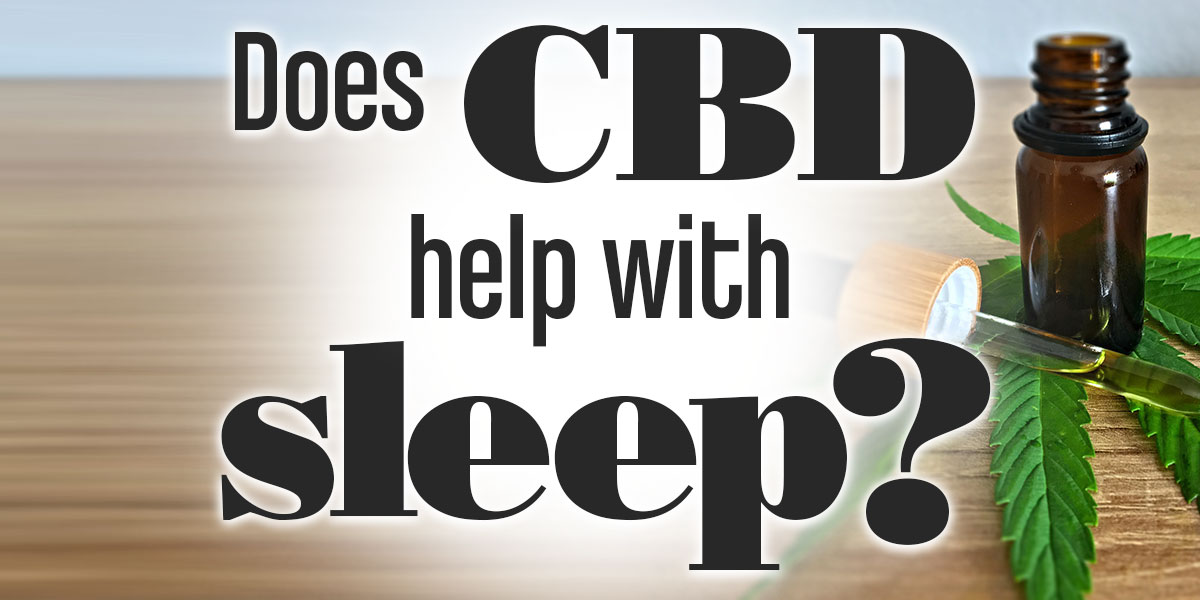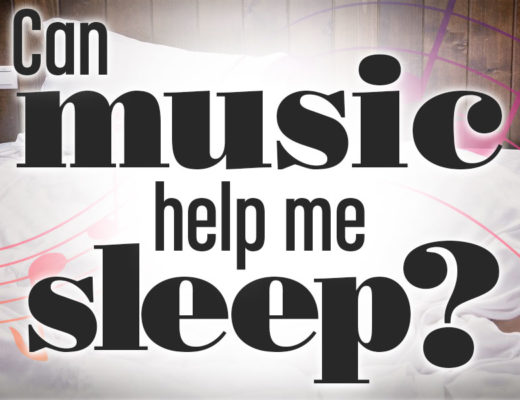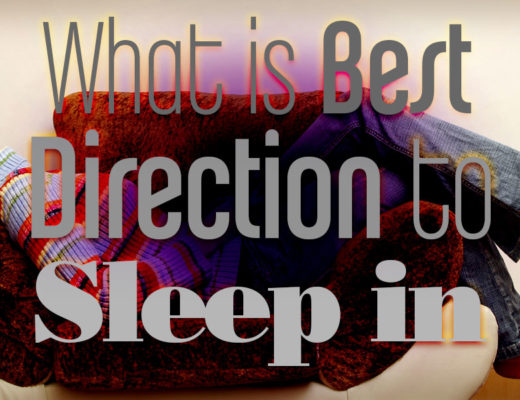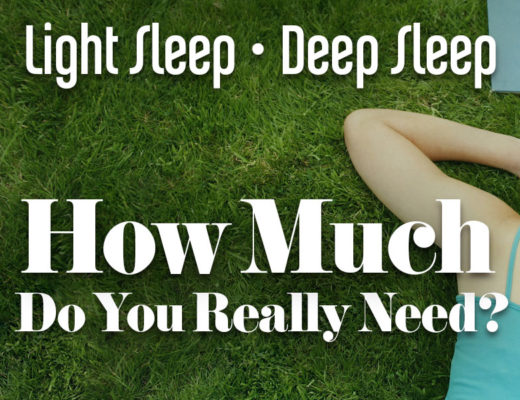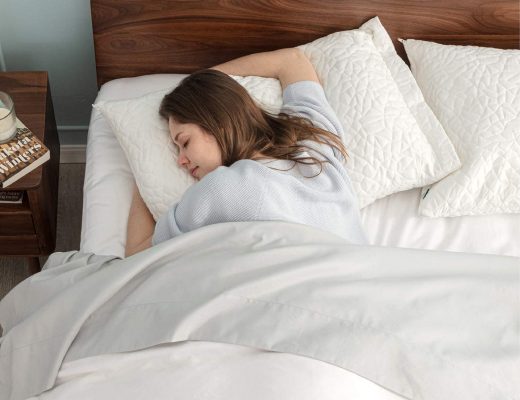Consumers are always looking for all-natural remedies to their sleep problems, especially if they are concerned that they could develop a dependency on more mainstream pharmaceutical aids. A quick look through the shelves of your local pharmacy will reveal a lengthy list of supplements and other holistic products that promise to bring a deep, relaxing sleep. The latest product to gain popularity with the sleep aid crowd is cannabidiol, or CBD, a non-psychoactive compound extracted from hemp and cannabis that’s alleged to help with all sorts of maladies, including poor sleep.
But can CBD help you achieve a better night’s sleep? The answer appears to be yes, but “appears” is the operative word: very few medical studies have been conducted to determine what CBD does and how it works. While what they’ve found has been promising so far, there’s no definitive response from the medical community on the subject.
That being said, it’s not hard to find troves of customer reviews singing the praises of CBD products for sleep and other issues. It’s certainly worth trying if you’ve tried and been disappointed by melatonin, magnesium, and other more commonly used methods. But before you purchase your first CBD product, you should take the time to learn more about CBD and how it may work for you.
What is CBD?
As we mentioned earlier, CBD is a naturally occurring chemical compound found in cannabis as well as hemp. Because of the former plant’s use as a recreational drug, people sometimes associate CBD with the high one gets from smoking marijuana. That effect, however, is the result of THC, which is not present in CBD in high amounts. CBD itself is not known to be psychoactive.
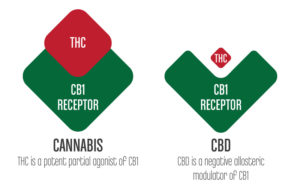 So if it doesn’t cause a feeling of euphoria or high, what does CBD do? Officially, the FDA has only approved one CBD-based medication, which is used to treat epilepsy. But since it was first written about centuries ago, people have been using CBD to treat physical and mental ailments. It’s difficult to pin how accurate or successful these treatments are because its association with cannabis makes it difficult to study in a legal capacity; many laws across the country still criminalize possession of cannabis, and it’s still illegal on the federal level barring special circumstances.
So if it doesn’t cause a feeling of euphoria or high, what does CBD do? Officially, the FDA has only approved one CBD-based medication, which is used to treat epilepsy. But since it was first written about centuries ago, people have been using CBD to treat physical and mental ailments. It’s difficult to pin how accurate or successful these treatments are because its association with cannabis makes it difficult to study in a legal capacity; many laws across the country still criminalize possession of cannabis, and it’s still illegal on the federal level barring special circumstances.
What we’re left with is largely anecdotal evidence brought forth by users. The few studies that have been conducted suggest that CBD can help relieve both nerve and musculoskeletal pain. Less conclusive is evidence suggesting that CBD can calm an otherwise overactive mind, lending a hand to those struggling with heightened anxiety and depression.
Outside of that, things get a little shaky. At the present moment CBD use, while booming in popularity in the past few years, is still fringe within the medical community. Without studies to analyze the chemical and prove demonstrable results, users have attributed all sorts of benefits to CBD that are up for debate or outright false. Further research is needed to develop a better grasp of CBD’s potential.
Can CBD Help With Sleep?
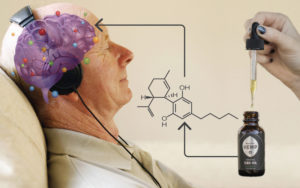 With the limited studies that have been performed thus far, there’s evidence suggesting that CBD may promote better sleep. This could be directly tied to its ability to reduce pain and calm the nervous system: with those two effects in play, it’s only natural that you’d have an easier time falling asleep. Specialized studies focusing on insomnia and post-traumatic stress disorder specifically have also shown promising results.
With the limited studies that have been performed thus far, there’s evidence suggesting that CBD may promote better sleep. This could be directly tied to its ability to reduce pain and calm the nervous system: with those two effects in play, it’s only natural that you’d have an easier time falling asleep. Specialized studies focusing on insomnia and post-traumatic stress disorder specifically have also shown promising results.
You can read the results of some CBD sleep studies with a quick Google search. They are well worth reading to learn what specifically has been tested as well as the results.
A simple summary of the current data is this: cannabinoids (chemical compounds found in cannabis like cannabidiol) directly interact with receptors in the brain and can help regulate mood, appetite, sleep cycles, and more, depending on the cannabinoid in question.
How Is CBD Used?
CBD is extracted from hemp plants and separated from other cannabinoids like THC (there are hundreds of cannabinoids besides these two, they’re just the most well known). The oil can then be included in various products and used in different ways, each with different outcomes. The most common methods and products used are:
-
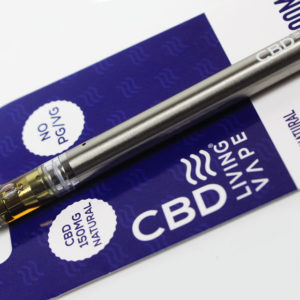 Tinctures, which are a liquid mixture. A few drops can be placed beneath your tongue or added to a beverage. The CBD effect will take more time to feel but last much longer. Tinctures are also available in spray form.
Tinctures, which are a liquid mixture. A few drops can be placed beneath your tongue or added to a beverage. The CBD effect will take more time to feel but last much longer. Tinctures are also available in spray form.- Edibles use the oil as an ingredient in food or capsules and pills. The easiest to find are small candies or baked goods, but it’s possible to add CBD oil to larger food items as well. It works on a similar time frame as tinctures. Edibles include capsules and pills.
- Smoking CBD oil via vape pens, which may deliver relief faster than all other options (and maybe more convenient/discreet), but the effect only lasts for a few hours.
- Topical creams, which are manufactured and sold in national chains as a way to avoid legal complications (more on that in a bit), but their effectiveness is in dispute. Absorption is difficult to measure and will vary wildly from one person to the next.
What you use CBD for will determine when you should use it. Though it doesn’t work by sending you straight to sleep, using CBD an hour or so before bedtime will prepare your body for a good night’s rest.
Are There Any Side Effects to Using CBD?
Though it’s thought to be safe for consumption there have been a few observed side effects associated with CBD use. Some of these can only be diagnosed on a person-by-person basis, while others depend on dosage and medicine interactions. To keep yourself safe you should discuss your interest in using CBD as a sleep aid with your doctor beforehand. They can go into greater detail about any potential risks.
The most common (and mild) side effects include nausea, fatigue, diarrhea, and weight fluctuation.
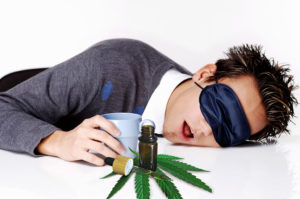 It’s important to note that the current legal status of CBD means the market is largely unregulated by the FDA, allowing manufacturers to forgo reporting all the contents of their products. Additives are common even in prescription medications, but they’re also listed as a requirement. People making CBD products aren’t held to the same restrictions, and even those that choose to include an ingredient label may not be comprehensive. If a CBD product is causing an adverse reaction, it could be something else in the product and not the CBD itself.
It’s important to note that the current legal status of CBD means the market is largely unregulated by the FDA, allowing manufacturers to forgo reporting all the contents of their products. Additives are common even in prescription medications, but they’re also listed as a requirement. People making CBD products aren’t held to the same restrictions, and even those that choose to include an ingredient label may not be comprehensive. If a CBD product is causing an adverse reaction, it could be something else in the product and not the CBD itself.
CBD should not be used by pregnant or nursing women. While studies have yet to uncover anything in CBD that may be dangerous during pregnancy or breastfeeding, that doesn’t mean it’s entirely safe. Until more studies are conducted, it’s best to err on the side of caution. Likewise, CBD is not recommended for children.
Is CBD Legal?
The hardest question to answer about CBD use isn’t how it works or if its effective for this, that, or the other: it’s legality. The answer is, unsurprisingly, complicated and largely misunderstood by the public at large. We’ll do our best to explain the ins and outs of it, but please do not take our word as the final authority on the subject. Research current laws in your area as well.
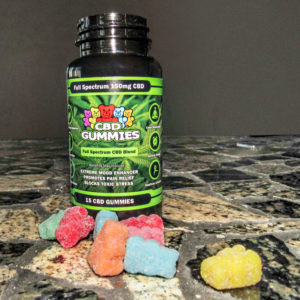 CBD derived from hemp was legalized on the federal level in 2018 via the Agriculture Improvement Act of 2018, also known as The Farm Bill. It’s important to note that it needs to be specifically derived from the hemp plant and have no more than 0.3% THC content to be considered legal. However, it gets more complicated at the state level: despite federal legalization, some states have exercised their independent authority to criminalize the sale and use of CBD within their boundaries or to put tighter restrictions on its use, like needing a prescription.
CBD derived from hemp was legalized on the federal level in 2018 via the Agriculture Improvement Act of 2018, also known as The Farm Bill. It’s important to note that it needs to be specifically derived from the hemp plant and have no more than 0.3% THC content to be considered legal. However, it gets more complicated at the state level: despite federal legalization, some states have exercised their independent authority to criminalize the sale and use of CBD within their boundaries or to put tighter restrictions on its use, like needing a prescription.
CBD derived from marijuana remains illegal on the federal level, not unlike the plant itself; though some states have legalized it in part or whole.
The question of legality doesn’t end there, though. The Farm Bill not only sets out strict guidelines for how CBD can be produced, but it also establishes CBD sold in products that must come from licensed growers. CBD’s legalization is still somewhat recent, so states and the FDA are trying to catch up with illegal sellers and growers. That’s part of the reason why so many sellers have appeared in the wake of the Farm Bill’s passing.
Cosmetics
The one area where the FDA doesn’t have authority is cosmetics. That’s why you can find CBD topical creams for sale in major national retailers. However, as we mentioned before, absorption hasn’t been proven to be an effective method of using CBD.
Further complications have arisen because of CBD’s use as a prescription drug. It’s status as an FDA recognized drug means that anyone selling a product with CBD as an ingredient has to avoid any unproven medical claims, regardless of what studies have found. That means anyone selling CBD products based on therapeutic effects is breaking the law.
The complexities of CBD’s legal status could be written about for quite a while, but for the scope of this article, this is enough. It’s in your interest to research related laws as much as possible.
What Is The Best Way To Use CBD For Sleep?
As with any sort of sleep aid, you should expect a period of trial and error when you first begin using CBD. Appropriate dosage depends on personal factors like weight and metabolism as well as other ingredients in the product itself. If your physician can’t make a recommendation, we’d recommend starting with smaller doses and gradually increasing them if need be.
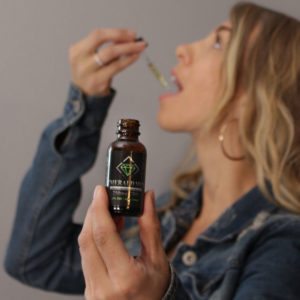
When using CBD specifically for sleep, the method is important. You’ll want the effect to last as long as possible, which sometimes means having to wait longer for it to kick in. Tinctures and edibles are the best because of this reason. Try ingesting about one hour before bedtime.
Make sure you go into CBD with reasonable expectations. It can be a powerful tool for some, but it’s far from a miracle drug. CBD doesn’t promote drowsiness the way prescription sleep medication does. Instead, it helps you prepare for a sleep state by relaxing your body and easing anxiety.
The only other point that should be noted regarding CBD in sleep is that it may not be best to use every night. Some studies suggest its effectiveness drops over time. If you are experiencing chronic sleep issues; Passover CBD or use it sparingly in conjunction with other aids under a physician’s supervision.
How Do I Know I’m Buying Good CBD Products?
The lack of regulation in the CBD market means sellers and manufacturers have popped up all over the place. Searching for a product that you feel is safe can be intimidating. While there will always be a certain level of trust involved; these guidelines can help ensure you get the best products for your money.
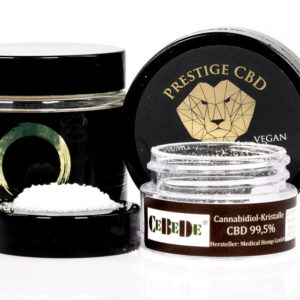
-
- Ask for the source. There’s nothing requiring manufacturers to label CBD products, but a trustworthy seller should be happy to tell you not only where their CBD comes from, but also which growers they use. This is important for two reasons: safety and legality. Growers outside of the United States don’t need to meet the same agricultural safety requirements. What’s more, knowing the grower (and if the grower is licensed), can tell you that these requirements are met.
- Look for ingredient labels. This is important to know in case you have a negative reaction to a product. It will also tell you how much actual CBD is in the product for dosing purposes.
- Avoid products that promote health benefits. Any product made and sold in the United States that promises positive health benefits without undergoing FDA testing violates the law. However, the FDA only tests medicines intended for the prescription. So any CBD product you buy over the counter shouldn’t be promising the moon.
- Be careful where you buy CBD online. At the time of this writing, you can find countless sellers dealing in CBD products on platforms like Amazon, but you can’t know how knowledgeable they are about the products they sell. They could simply be resellers trying to chase what they see is a trend. If you buy online, investigate and see if they are licensed and how much info they provide.

